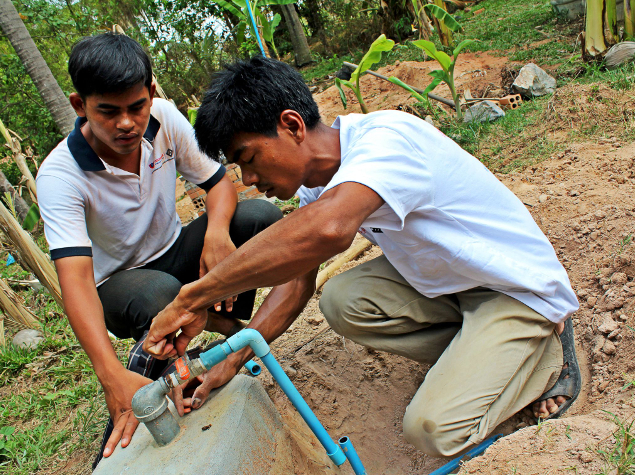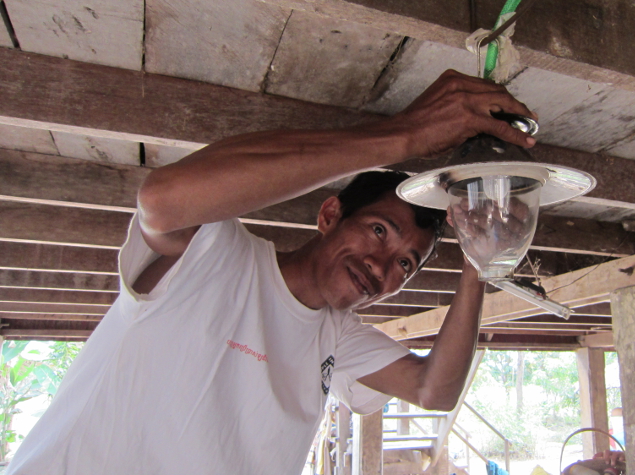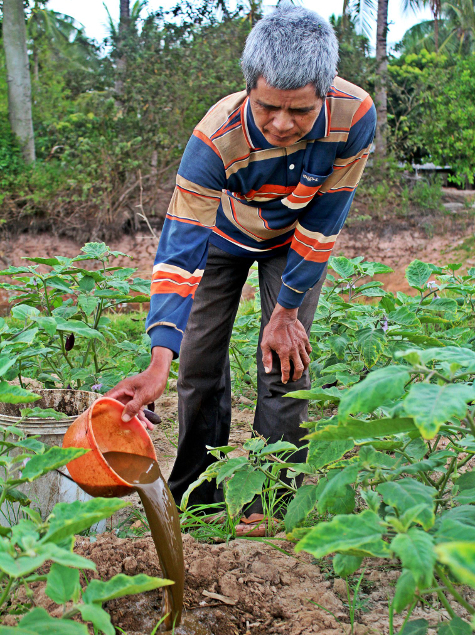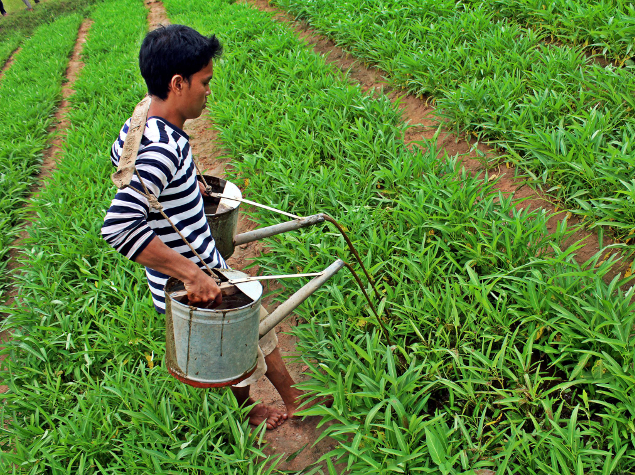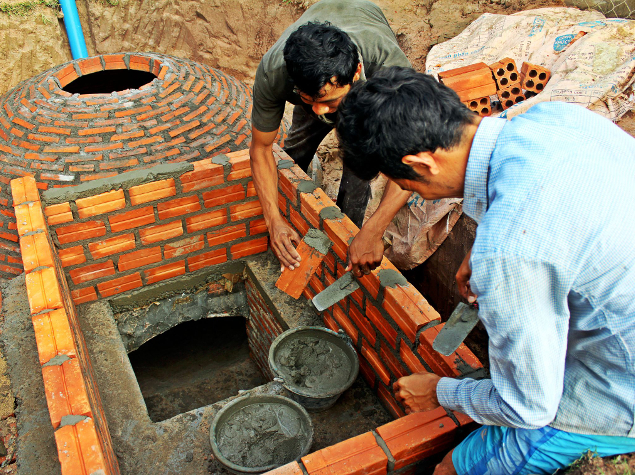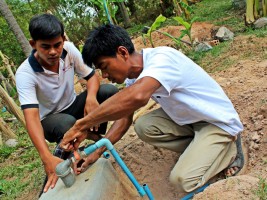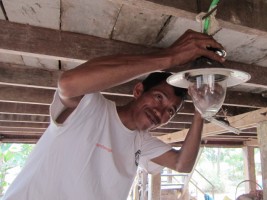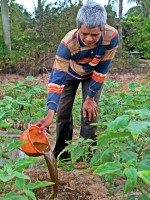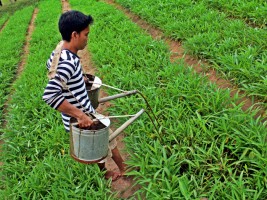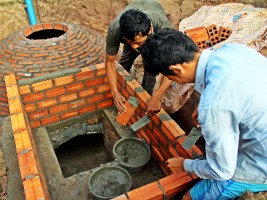Turning waste into energy

83% of the total and 94% of the rural population in Cambodia depend on biomass fuels, including firewood and charcoal, as their main cooking fuel. This places a heavy burden on Cambodia’s natural resources and is having severe environmental and socio-economic implications for the country. With an average need of 8 kg of firewood per household per day for cooking purposes families spend a considerable amount of time for collecting wood (up to two hours per day) or have to pay substantial amounts to buy it.
Biodigesters are underground constructions, where decomposing animal excrements release a mixture of methane and carbon dioxide, which is then easily harnessed as a fuel for gas stoves and lamps. Families gain a comfortable source of light and cooking energy and especially women do not need to purchase firewood or cook in smoke-filled rooms anymore. Thanks to reduced burning of firewood, the utilization of gases from decomposing animal waste and replacement of chemical fertilizers by highly effective bioslurry, emissions of greenhouse gases fall annually by 4.01 tones per one biodigester. Firewood and fertilizer-related financial savings per household amount to 184 USD annually, additional gains come from increased production driven by using organic slurry.
National Biodigester Program (NBP) was initiated in Cambodia in 2006. PIN started supporting NBP in 2011. Provided that the demand for biodigesters follows a similarly increasing trend as from 2006 to 2012, it is expected that by 2019 the biodigester sector will become fully market-driven and independent from external development financing. The project supports the development of a market-based sector with domestic biodigesters.
The main objectives of this project are by the end of 2016, Cambodian market-based biodigester sector is strengthened, employs a minimum of 1,090 rural workers, constructs at least 3,000 domestic biodigesters annually and reduces greenhouse gas emissions by 90,000 t annually.
To achieve these goals it is expected that:
- The market-based supply of domestic biodigesters is strengthened thanks to 25 newly established and trained Biodigester Construction Companies employing at least 200 rural workers and constructing at least 150 biodigesters per month.
- 5 existing Biodigester Construction Companies employing 480 people have applied recommended practices related to biodigester promotion & marketing, quality management, staff management and financial management leading to better performance and increased prospects for long-term commercial viability of the biodigester construction businesses.
- 80 new, community-based providers of after-sale services (sale of spare parts, maintenance support etc.) enable 4,100 biodigester users to ensure proper plant maintenance and to gain economical benefits from using their biodigesters.
Read the testimony of Mr. Lorn Samoeun, entrepreneur with the People in Need project in Cambodia.

